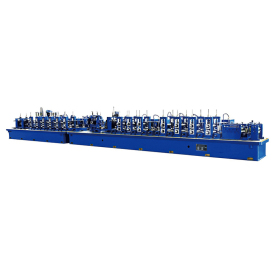In the ever-evolving field of electronic design, precision and accuracy are paramount. The intricate workings of circuits demand components that can reliably provide accurate measurements and performance benchmarks. Among these components, precision impedors have emerged as crucial elements in enhancing the functionality of various electronic devices. This article explores the role of precision impedors in circuits, their design considerations, applications, and the benefits they offer to engineers and designers.

Understanding Precision Impedors for Circuits: Enhancing Accuracy and Performance in Electronic Design Applications
Precision impedors, often referred to as precision resistors, are designed to offer exceptionally accurate resistance values with minimal variance over a range of environmental conditions. They are characterized by their low temperature coefficient, which ensures that their resistance value remains stable despite fluctuations in temperature. This stability is vital for circuits that demand high fidelity and reliability, such as medical devices, instrumentation, and automotive applications.
One of the primary design considerations for precision impedors is the choice of materials. High-quality materials such as metal film, thin film, and wirewound variants are commonly used in the manufacture of precision resistors. Metal film resistors, for example, are favored for their excellent temperature coefficients and low noise characteristics, making them suitable for precision measurement applications. Thin film resistors, on the other hand, provide high precision and excellent long-term stability, which is essential for various industrial applications.

Understanding Precision Impedors for Circuits: Enhancing Accuracy and Performance in Electronic Design Applications
Another critical aspect of precision impedors is their tolerance level. Tolerance indicates how much the actual resistance can vary from the specified value. Precision impedors typically have tolerances ranging from ±0.01% to ±1%, significantly lower than standard resistors, which may have tolerances of ±5% or higher. This high level of precision allows engineers to maintain stringent control over circuit performance, which is particularly important in sensitive applications such as data acquisition systems.
Additionally, the power rating of precision impedors plays a significant role in their application. Power ratings determine how much power the resistor can handle without overheating or failing. Choosing the right power rating is crucial, as it must align with the specifications of the circuit to ensure that the impedors perform optimally. This is especially true in high-performance applications where resistors might be subjected to significant power levels.
Precision impedors also find their applications in various types of circuits. In analog circuits, they are often used in voltage dividers, sensor applications, and signal conditioning circuits. In digital circuits, precision impedors are critical in matching impedance and ensuring signal integrity, which is vital for high-speed data transmission.
One notable application of precision impedors lies within the realm of strain gauges. Strain gauges are sensors that measure the strain of an object, and when paired with precision resistors, they can provide highly accurate readings. This combination is instrumental in structural health monitoring, where it is essential to detect any potential weaknesses or failures in infrastructure.

Understanding Precision Impedors for Circuits: Enhancing Accuracy and Performance in Electronic Design Applications
Another crucial industry where precision impedors play a significant role is in the medical field. Medical devices such as electrocardiograms (ECGs) and blood pressure monitors require highly accurate components to provide reliable readings for patient diagnostics. The precision of the resistors can directly impact the performance and reliability of these devices, making the use of high-quality impedors indispensable.
Moreover, advancements in technology continue to drive innovations in precision impedors. The ongoing development of thin film and chip resistor technologies enables manufacturers to produce smaller, more efficient components without compromising on performance. Such trends not only benefit engineers designing compact electronic devices but also help to reduce overall manufacturing costs.
In conclusion, precision impedors are vital components in the realm of electronic circuit design, offering enhanced accuracy and performance for a wide array of applications. Their ability to provide stable resistance values with minimal tolerances makes them indispensable in industries such as medical, automotive, and instrumentation. As technology progresses, the demand for precision impedors will continue to grow, leading to innovations that will drive the future of electronic design forward. Engineers and designers must recognize the importance of selecting the right precision impedors to ensure the success and reliability of their circuits.Stainless steel Tube making machine